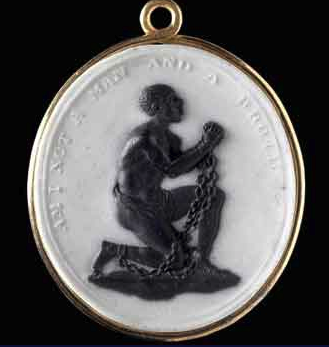

Write a letter to her in which you tell her what you know about The Liberator and what you have read in the latest issue.

A cousin from South Carolina writes to you to ask about The Liberator, about which she has heard many rumors. Imagine you live in Massachusetts in 1833. What was one argument made for the eradication of slavery by abolitionists? Choose one item from this set that expresses that argument. Using Abolitionism Exposed! as evidence, describe some counterarguments to abolition that were expressed at the time. Using the excerpt from the 1838 printed pamphlet, explain how women fighting for suffrage found common cause with abolitionists. How were visual images, including objects such as the British medallion, and the popular press used to advance the abolitionist cause? Why were the voices of former slaves essential to the success of the abolitionist movement? Ultimately, the goal of the abolitionist movement was partially enacted with President Abraham Lincoln’s 1863 Emancipation Proclamation, and fully achieved with the passage of the Thirteenth Amendment in 1865.Ĭonsider the photograph of Sojourner Truth and the text of Frederick Douglass’ speech. Anthony and Lucy Stone, who, at times, saw the causes of women’s rights and the abolition of slavery as related. Abolitionists included former slaves such as Harriet Tubman and Frederick Douglass, publishers and writers such as William Lloyd Garrison and Harriet Beecher Stowe, politicians such as Senator Charles Sumner, and feminists such as Susan B. As the expansion of the US westward created the potential for new states where slavery could be legal, the abolitionist movement took shape, mounting increasing political activism between 1820 and the outbreak of Civil War in 1860. However, slavery persisted in parts of the American mid-Atlantic and the entirety of the American South. Some states had banned slavery during the colonial period or shortly after independence, often due to advocacy by Quakers and other religious people objecting to slavery. The abolitionist movement espoused the view that slavery was morally wrong, and that the United States should ban slavery and emancipate all enslaved people.


 0 kommentar(er)
0 kommentar(er)
